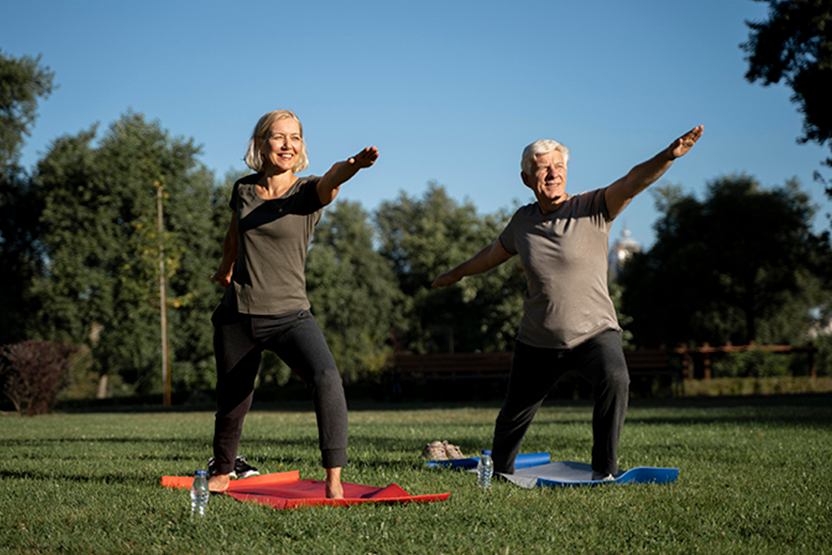Living with Parkinson’s disease presents unique challenges for both patients and their caregivers. From managing motor symptoms to coping with emotional fluctuations, navigating daily life can be overwhelming. However, with the right strategies and support, it’s possible to enhance quality of life and maintain a sense of normalcy. In this blog, we’ll explore practical coping strategies for Parkinson’s patients and caregivers alike.
Tips for Parkinson’s Patients and Caregivers:
1. Stay Active: Regular exercise is essential for managing Parkinson’s symptoms and maintaining mobility. Encourage daily physical activity, such as walking, swimming, or tai chi, to improve balance, flexibility, and overall well-being.

2. Prioritize Rest and Relaxation: Fatigue is a common symptom of Parkinson’s disease, so it’s crucial to prioritize rest and relaxation. Establish a consistent sleep schedule, practice relaxation techniques like deep breathing or meditation, and take short breaks throughout the day to recharge.
3. Adopt a Healthy Diet: A nutritious diet can support overall health and may help alleviate certain Parkinson’s symptoms. Focus on whole foods, including fruits, vegetables, lean proteins, and whole grains, and limit processed foods and sugary snacks. Consider consulting with a dietitian for personalized nutrition recommendations.

4. Manage Medications Effectively: Medication management is key to managing Parkinson’s symptoms and preventing complications. Follow your prescribed medication regimen closely, and communicate regularly with your healthcare team about any concerns or changes in symptoms.

5. Stay Connected: Social support plays a crucial role in coping with Parkinson’s disease. Stay connected with friends, family, and support groups for encouragement, understanding, and practical assistance when needed. Online communities and local support groups can provide valuable resources and a sense of community.
6. Focus on Mental Health: Parkinson’s disease can take a toll on mental health, leading to feelings of anxiety, depression, or isolation. Practice self-care strategies like journaling, engaging in hobbies or activities you enjoy, and seeking professional support from therapists or counselors trained in Parkinson’s care.
7. Adapt Your Environment: Make your home environment safe and accessible for individuals with Parkinson’s disease. Remove trip hazards, install handrails or grab bars where necessary, and consider assistive devices or adaptive equipment to facilitate daily tasks.
Living with Parkinson’s disease presents daily challenges that can be physically and emotionally taxing for both patients and caregivers. However, by implementing practical coping strategies and seeking support from healthcare professionals and loved ones, individuals with Parkinson’s disease can enhance their quality of life and maintain independence for as long as possible. Remember, you’re not alone in this journey, and there are resources and support networks available to help you navigate the challenges ahead.
